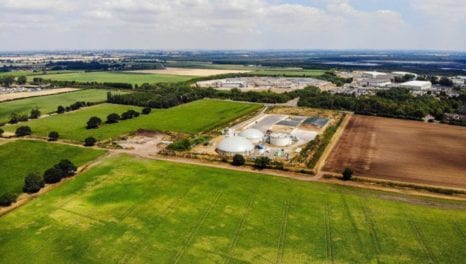Move beyond vector-specific energy regimes
‘Whole system’ thinking for governance and regulation of energy networks could unlock untold efficiencies and business opportunity, says George Day
20th October 2016 by Networks

In 2030 when we look back to 2016 we can probably all imagine how Brexit will dominate our political memories. But for those of us in the energy sector I hope 2016 will also be remembered as the year when we started to think more deeply about how we govern and regulate our energy networks.
While debate will continue to rage about the shape of our future energy mix, we can all agree that radical changes will be needed across the board to decarbonise our electricity, our industrial energy, our heating and our transport fuels. And this will have major implications for the investment we make, from now on, in long life network infrastructures.
“More ‘cross-vector’ flexibility could enable many more options to efficiently transmit, store and use energy in different forms. In many areas we could not see how current frameworks could incentivise or regulate the investment in networks needed to make this happen.”
New thinking about the challenges ahead has started to emerge across the sector, regulators and policy makers and in academia. I think this reflects a growing realisation of the breadth and scale of the challenges of low carbon energy, going beyond the electricity sector issues which have tended to dominate over the last few years.
ETI has long argued for the importance of a whole system perspective on the transition to a low carbon future. And we too have been playing our part in stimulating new thinking on how we govern and regulate investment in energy networks to meet the challenges ahead.
Last month we published new thought pieces on energy network governance and regulation by four industry experts (Bob Hull of KPMG and formerly Ofgem; John Rhys of Oxford Institute of Energy Studies & formerly NERA: Jorge Vasconcelos former Portuguese energy regulator and Keith Maclean Chair of UKERC and formerly SSE). Alongside this an ETI paper summarises the themes emerging from our ‘Enabling efficient networks for low carbon futures’ project.
We decided to do this project on governance and regulation because we could see that many of the changes envisaged in our low carbon scenarios would be difficult or impossible under current policies, frameworks and regulatory approaches.
Enabling different future energy mixes raises new questions, both challenging and going beyond the current essentially ‘vector-specific’ statutory regimes covering gas and electricity. We wanted to be open-minded so we commissioned a range of viewpoints, but we also deliberately sought to bring a ‘whole system’ perspective into play, reflecting ETI’s own strengths in whole system analysis.
The scenarios that ETI developed in 2015 for the UK energy transition pointed to the high value of enabling a broader mix of energy vectors (heat, power and gaseous fuels), within a more integrated ‘system’ of energy transmission, storage and distribution.
For energy network infrastructure, this would mean not only substantial investment in adapting and enhancing existing power and gas infrastructure, but also investment in completely new networks (for example, new city-scale heat networks) and making networks operate together in real time as a ‘system’.
More ‘cross-vector’ flexibility could enable many more options to efficiently transmit, store and use energy in different forms. In many areas we could not see how current frameworks could incentivise or regulate the investment in networks needed to make this happen.
For today’s DNO’s this could imply a very different and potentially much more interesting future business model. In this context, current moves by Ofgem and others to consider the roles of DNOs in innovation, in facilitating distributed generation and as distribution system operators (DSOs) could be just the first steps to a more complex and innovative future role.
Our four experts came from contrasting backgrounds but all with deep knowledge and understanding of this issues. All agreed on the need for new or reformed governance mechanisms to steer the transformation of the energy system and infrastructure, while also ensuring that a whole energy system perspective shapes decisions. All saw markets and competition playing a key role in enabling the right kinds of investment, but with a more prominent local and decentralised dimension to decisions on energy networks and operation.
While we don’t pretend to have all the answers, we think these think pieces help to map out the territory on which we collectively need to spend more time and intellectual energy.
Comments
Login on register to comment
Related content

Gas
Cadent backs launch of major bio-CNG HGV refuelling station
Gas network’s £250,000 infrastructure investment ensures supplies to existing connected customers have not been impacted

Gas
Editor’s blog: The biggest tests of resilience are yet to come
Network content director Jane Gray reflects on the industry's coronavirus response to date and the challenges still to come.

Gas
From the front line: Chris Garside and Andy Simcoe, Northern Gas Networks
Key workers across the power and gas networks are playing a critical role in the national response to Coronavirus. Network has committed to profiling their stories.
Related supplier content

Power
Load patterns and lockdown: how Covid-19 is impacting electricity networks
Insights into dynamics on the low voltage network as the outbreak unfolds

Downloads
Protect electrical equipment from insulation failure
Insulation faults are a major cause leading to the eventual failure of electrical equipment. Partial discharge (PD) is a very reliable indicator of developing insulation faults. Regular PD testing allows users to detect and analyze PD activity

Heat
How E.ON. is helping the City of London become a zero emissions city
Discover Citigen. Deep in the heart of our bustling capital